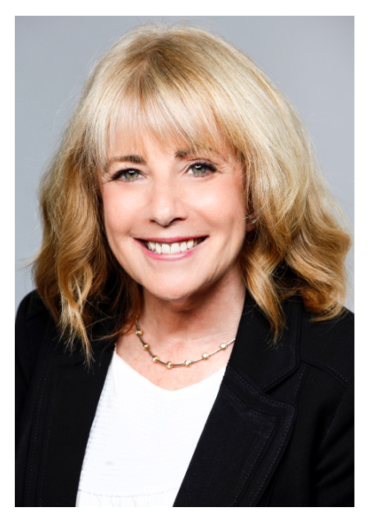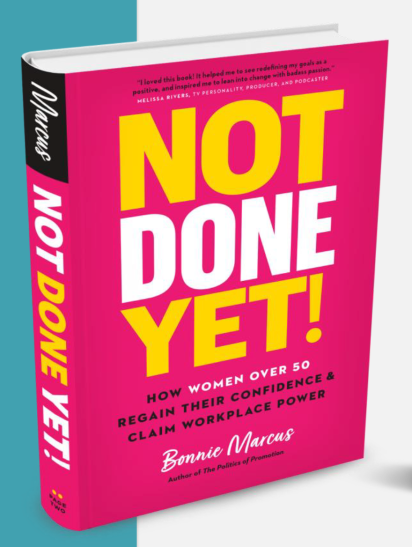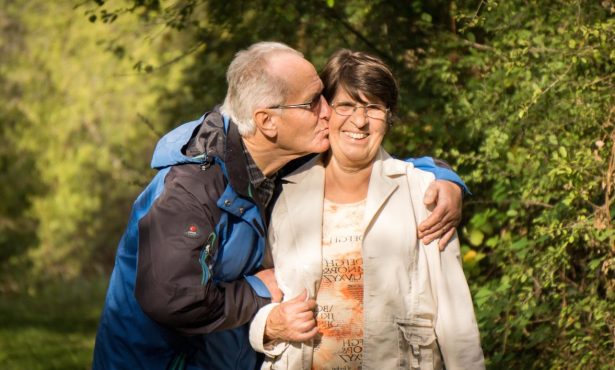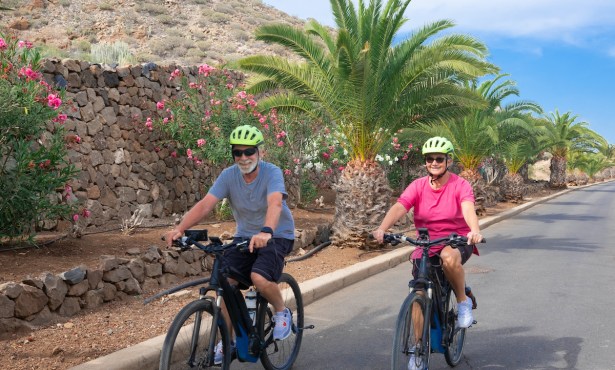Age Is Just a Number
Santa Barbara Author Bonnie Marcus Explains How Gendered Ageism Isn’t Just a Female Problem
By Leslie Dinaberg | August 25, 2022

Read all of the stories in “Our 2022 Active Aging Guide” here.
Gendered ageism — the double-whammy slap in the face of age and gender bias — is something that career coach Bonnie Marcus sees more and more of her clients facing. “This is the next Me Too movement,” says Marcus, a Santa Barbara resident who addresses the issue in her book, Not Done Yet! How Women Over 50 Regain Their Confidence and Claim Workplace Power, published last spring.
The issue first came to her attention about four years ago, when she was working with a client who was an attorney for a large tech firm in Silicon Valley. The woman was 58 and had always been a star performer, but she noticed that things had begun to change. Her boss didn’t ask her for her opinion as often, her workload changed, she wasn’t invited to some meetings where she felt she would add value, and she was beginning to feel like she was being pushed out.
“It’s a pretty common theme,” says Marcus. “So I said to myself, this can’t be an isolated experience. I had a 25- year career in corporate and really personally hadn’t experienced gendered ageism, but this can’t be a unique experience.”
It turns out it wasn’t.
She started to do research and found more and more women who had similar experiences to her client. Not only that, many of the women she interviewed for what was now a book project insisted on anonymity “because they feared retaliation. They thought they would lose their job because they had no one to talk to, which is very similar to the way women felt before the Me Too movement really gained momentum.”
After extensive research, Marcus found that 77 percent of the women who experienced gendered ageism took no action. And for those who actually did complain to HR or to management, no action was taken.

Her goals with the book were two-fold: first, to bring awareness to the fact that gendered ageism is real, and women don’t often have the support or resources to deal with it at work. And also, to give women the tools to be able to stay marketable, proactive, and aware of potential issues for their entire careers.
“The research shows that as women show visible signs of aging, they’re not only viewed as less valuable; they’re viewed as less competent,” says Marcus. “Men experience ageism too, but women experience it earlier, because of what’s called lookism. And that is our society’s emphasis on appearance.”
What are some of the tools to fight this? Marcus says, “The career advice that I give my clients of all ages is I think women need to be super, super vigilant. Some of the tips that I give in my book are to have a conversation with your manager and declare your ambition. Let them know that you’re not necessarily ready to slow down, because the assumption is as you get older, you don’t want to work as hard. That may or may not be true.” She advises that if you want to keep working, whether out of financial necessity or because you like what you do, “I think it’s important to be upfront and dispel any of those assumptions that decision makers may have, and come up with a viable plan for how can I continue to add value to this organization for say, the next five, 10 years, whatever it is, put a plan in place.”
Marcus also points out that it’s not just women who stand to lose from age bias. She cites a new book, Stage (Not Age) by Susan Wilner Golden of Stanford University, which projects the global market for spending by people over age 60 at a whopping $22 trillion across every industry. Age bias means missed business opportunities on a lot of levels, says Marcus. Companies are losing valuable assets when employees are aged out prematurely, “and if you’re talking about diversity, equity, and inclusion, and how that affects creativity, and innovation, how that affects your overall business — it certainly is important to have all voices at the table.”
In addition, Marcus points out, we need to examine our own bias and the way we feel about aging, “because that is the one thing we can control.” She also reminds us that ageism works in both directions, and that young women — and men — are also sometimes not taken as seriously because of their age.
“We all need to understand that some of these beliefs and assumptions which we have internalized hold us back, so they become self-fulfilling prophecies,” says Marcus.
She continues, on the topic of having an ageist mindset: “That kind of thinking not only affects our health and our well-being and our longevity, as recent research shows, but also our viability and marketability in the workplace.”
Along with working with individual clients, speaking to corporations, and advocating for women in the workplace on a national scale, Marcus also provides weekly inspiration on her Badass at Any Age podcast. Her interviews with ambitious women who have challenged the status quo and won are an entertaining way to learn about their stories and strategies and perhaps take away an idea to apply in your own life and career. For more information, visit bonniemarcusleadership.com.




You must be logged in to post a comment.